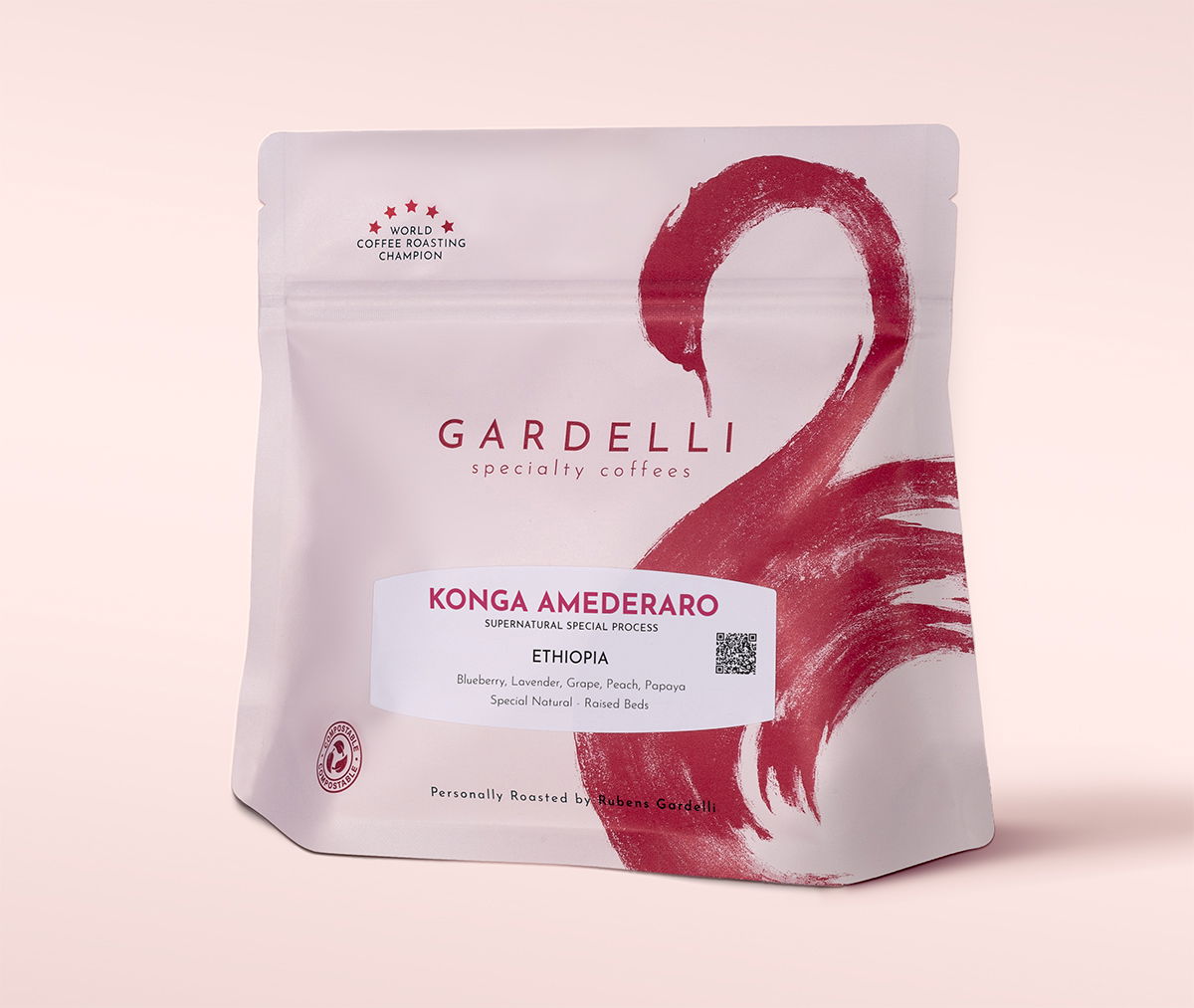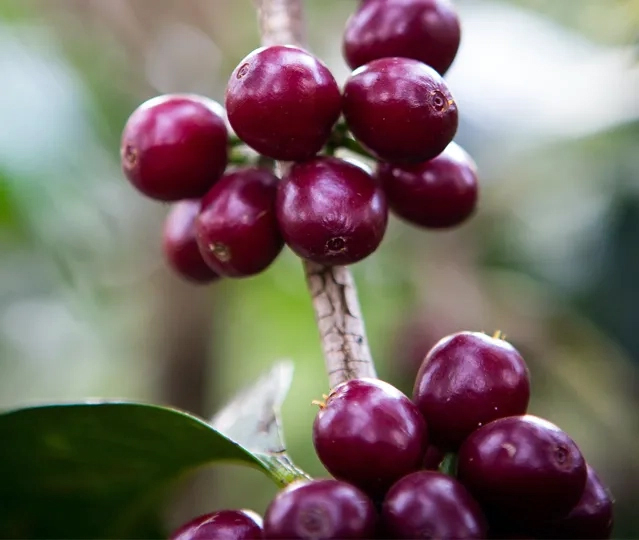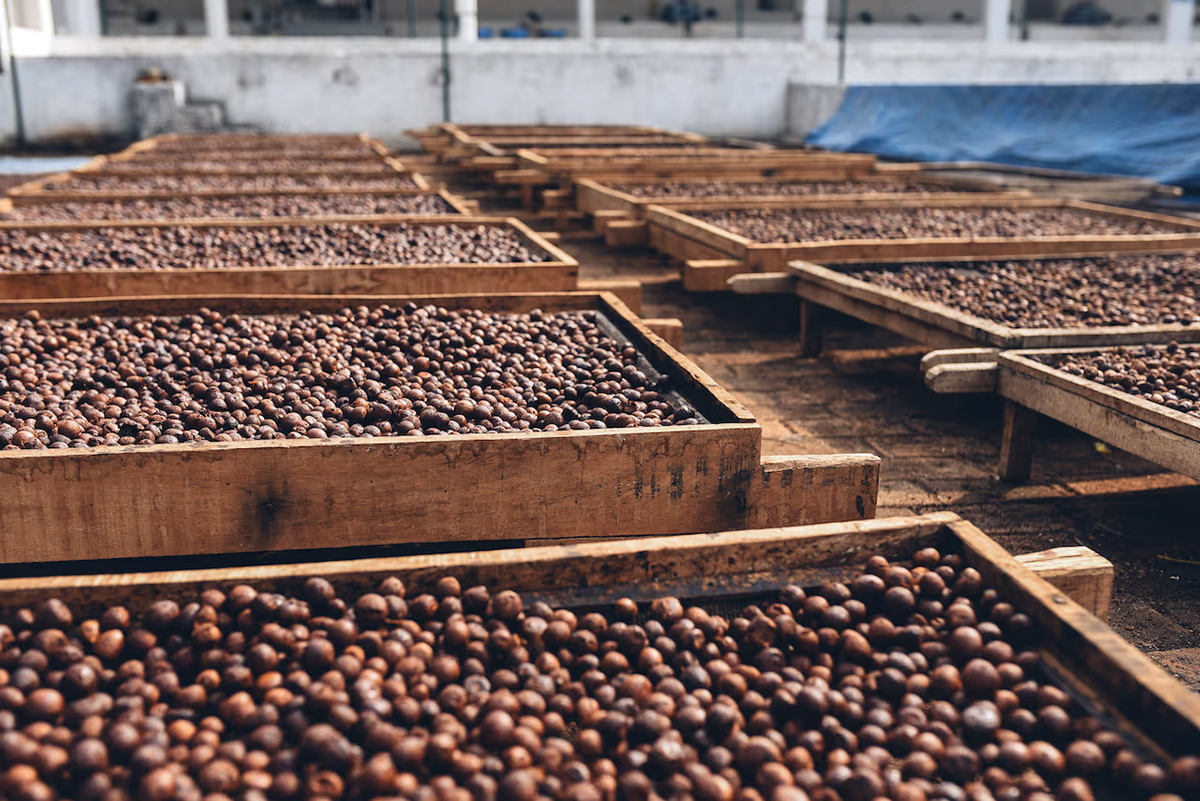






Ethiopia
250g
Cup Notes: Lavender, Blueberry, Grape, Peach, Papaya
This coffee doesn’t hold back! Get ready for a punch of intense flavour with bold blueberry and grape notes, all wrapped up in a perfectly balanced acidity.
Suggested for espresso and filter
when we roast
We freshly roast to order all coffees on Monday, Wednesday and Friday (excluding national holidays), and ship the same day! Cut-off time is 11:59pm (UTC+1) of the day before the roast day. *We only ship whole beans*
Konga Amederaro is a processing station in Konga village, Yirgacheffe, at 2,000 masl. Supported by the Toracho River, it works with 1,890 local farmers to produce high-quality coffee. The station’s strict quality standards have earned it recognition in the industry, including 7th place in the inaugural Ethiopia Cup of Excellence and spots on the final table of the Taste of Harvest competition in 2018 and 2019.
Coffee is grown by smallholder farmers on small plots surrounding their homes, called "garden coffee." These farmers cultivate Jarc, an Ethiopian heirloom sub-variety, alongside crops like enset (Ethiopian banana), avocados, and papayas for additional food sources. Compost is used to maintain soil fertility, and farming practices are organic, though often uncertified due to high certification costs. Farmers rely on natural pest control methods due to limited access to chemical inputs.
Shade trees are planted to create a suitable microclimate for coffee growth and support the ecosystem. Pruning, including topping and removing lower branches, is used to improve cherry production and tree health.
Konga Amederaro also adopts experimental processing methods like the "Supernatural" technique. This method enhances the traditional sun-drying process by adding controlled aerobic fermentation during drying, highlighting the region’s capability for producing exceptional specialty coffee.

The Ethiopian Heirloom coffee variety stands as one of the most precious gems in the world of coffee. Cultivated in the high altitudes of the mountainous regions of Ethiopia, this variety is a true treasure of complex and deep aromas.
What makes the Ethiopian Heirloom variety unique is its wild and non-hybrid nature. These coffees are grown by local farmers using traditional practices, inherited from past generations. The absence of artificial hybridization means that each plant is a blend of indigenous varieties, giving the coffee an extraordinary genetic diversity.
The terroir of Ethiopia, with its volcanic soil and ideal climate, significantly contributes to the aromatic complexity of these coffee beans and accounts for the unique flavour notes, resulting in an unusual and refined cup.
Fruity, floral, and spicy notes emerge in every cup, offering a unique sensory experience. Ethiopian Heirloom coffees are known for their bright and lively acidity, balanced by a silky body. Ethiopia is often considered the birthplace of coffee, and the Heirloom variety represents a return to the roots of this precious beverage. Traditional cultivation, unique genetic variety, and a perfect combination of environmental factors give this coffee a distinctive character that enchants coffee lovers around the world.

In traditional Ethiopian special natural processing, coffee cherries are spread in a thin layer on raised beds and dried under direct or indirect sunlight. In the "Supernatural" method, cherries are instead placed in thick layers on racks within semi-permeable boxes. This setup limits sunlight exposure while allowing controlled airflow and oxygenation, extending the drying period and enhancing natural sugar fermentation within the cherries.
To ensure consistency and prevent issues like over-fermentation or mold, the process requires close monitoring. Temperature, Brix levels, and moisture content are regularly measured, and adjustments to airflow and ambient temperature are made as needed.
When the cherries reach the ideal moisture content of approximately 12.5%, they are rested in a cool environment before secondary processing. This includes hulling, grading, sorting, handpicking, and packing in GrainPro bags for export.
